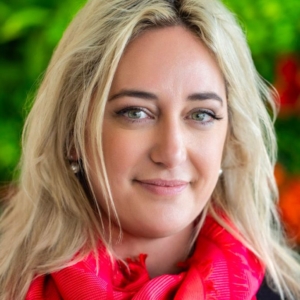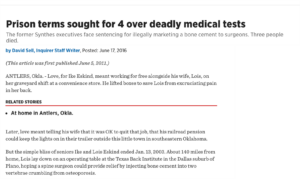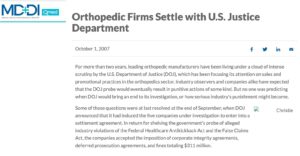How Grow Good Helped Jeuneora Become a B Corporation
Meet Monique From Jeuneora
Meet Monique Kaminski (Mon to her friends).

Mon started Jeuneora as a side hustle in 2016 with 100 bags of what’s now known as Renew+ Marine Collagen Super Powder. Now, six years later, her brand Jeuneora produces an entire range of marine collagen supplements, plant-based supplements, and topical skin care products.
From the beginning, Mon’s been committed to doing the right thing, so when she heard about the B Corp movement and its commitment to business as a force for good, it seemed like a natural next step for Jeuneora to take.
Feeling with B-Corp Overwhelm
B Corp wasn’t smooth sailing for Mon and her team. She recalls their first go at certification.
“We looked at B Corp ourselves, did the initial assessment, and to be honest, we were quite overwhelmed. It was huge. When we were answering all the questions, we didn’t know if we had to provide evidence for everything. Did everything have to have written policies? It was really a matter of what do we do and where do we start?”
This isn’t an uncommon B Corp experience. When you first lift the lid on the B Corp Impact Assessment it can appear long, unwieldy, and complex. And it’s hard for a reason. You can’t just pay your money and join the B Corp club. You’ve got to meet rigorous standards. But it sucks when you don’t know what to do next.
Mon asked her New Zealand Trade & Enterprise contact, Martin Cudd, if he knew someone who could help get them unstuck. As it happened, B Corp expert Tim Jones had just helped facilitate a series of workshops with NZTE for businesses interested in B Corp certification, so Martin made the intros and left Tim, Mon, and the Jeuneora team to get acquainted.
Getting the B Corp support you need
Jeuneora was committed to becoming a B Corp and they wanted to move fast. When Mon contacted Tim, they’d scored just under 60 points on the B Corp assessment but had no idea how to elevate that to the minimum of 80/200 points they required to become certified.
Mon remembers Jeuneora’s first meeting with Tim. “We liked his energy straight off the bat. And he gave us valuable context straight away. He said, you need to look at your industry standard for impact and the things you do that place you above that standard. It made us realise a lot of things that are business as usual for us, are not business as usual for the industry that we operate in.”
“Because Tim has worked with a number of different businesses on B Corp certification, he was able to say, ‘Okay guys, these are areas of improvement you can work on. Here are some actionable steps.’ He broke it down nice and easy for us to make a plan, which was really helpful.”
Tim recalls, “Initially, I was a bit dubious because the beauty industry isn’t always known for its ethics. But Mon’s values shine through. She and her team are genuinely committed to their community and making the world a better place. They knew B Corp would give them a framework to build on the good they were already doing, and they really saw the value in that.”
Baking in the B Corp
Even though the B Corp Impact Assessment is tough, getting certified is the easy part. The hard part is baking the B Corp into your business. Your organisational purpose and culture are the most important things when it comes to making a long-term commitment to being a good business, but they’re also the hardest thing to get right.
You can get your B Corp certificate and whack it up on the wall, but it doesn’t change your culture unless you do the extra work required to bring your B Corp commitment to life.
Tim explains, “The B Corp Impact Assessment is logical, while your organisational purpose is your soul. Finding your purpose requires you to do your shadow work, to identify the things you’re doing you really don’t like. To go inside yourself, find the better version of yourself and live for something bigger. The dragon to defeat is inside you. Lots of people are doing rainbows and unicorns purpose, all follow your joy, which is all very well, but not the whole story.”
Tim offers a range of B Corp consultancy packages, because while B Corp certification is important, there’s even more value in bringing your B Corp commitment to life with a shared sense of purpose, and shared ownership of impact across your team.
Jeuneora chose Tim’s B Corp + package, which combines B Corp certification support with organisational purpose and individual purpose workshops. This was capped off with an Impact Improvement Workshop to help Jeuneora understand how they could do more good over time and create a roadmap for evolution.
Mon explains, “One of the things we did with Tim was his Purpose at Work workshops. They were incredible, but I found that the most challenging part. Defining purpose and really thinking about things on a more visionary level is a tricky, abstract thing to work a team through, but Tim did a wonderful job helping us navigate that.”
The B Corp Certification Journey
The B Corp journey starts with getting everyone in your team on board for the ride. Tim introduces them to B Corp certification and to B Lab, the organisation behind B Corp. He explains why B Corp is taking off and why it’s good for business, before taking you on a whistle stop tour of notable B Corps around the world. This intro helps get your team pumped, gives any B Corp sceptics a chance to ask questions, and identifies your B Keepers, the folks in your business who will champion the process and help you shoulder the load.
Jeuneora’s Executive Director Colleen Itterman recalls the process they went through with Tim.
“We had the first B Corp overview meeting with the entire team. Then we had meetings for each section of the B Corp assessment. We said to the team, ‘If anyone’s interested in these individual sessions, feel free to come along.’ And we were really lucky that our entire team came to every single one. Tim went through every question in the assessment, the team discussed it and shared their thoughts, and we highlighted areas to action.”
“At the end, once we’d got to a baseline for our initial assessment, we had a final session to develop our three-year improvement plan which was a whole team workshop where we worked together to set the stage for the future.”
Tim explains, “To have an entire team attend every B Corp session is exceptional. Normally I work with the senior leader and a few managers. But Jeuneora had this incredible whole company buy in and a mandate from their leader that this process was valuable enough for the team to invest their time. It made the entire process more meaningful.”
Mon adds, “That buy in from the whole team was really cool. I thought, wow, everyone really cares about the business and were able to see how what they do contributes to the bigger picture. It was good to show people what goes into the business. There are touch points that everyone can see, but there are also a lot of things that go on in the background. It was a super cool process.”
Why nailing the B Corp assesment is like Pokemon Hunting
The trick with the B Corp Impact Assessment is there are two levels. The first is a basic measure of operational goodness. At the next level, you’re looking for occasions where you’ve gone out of your way to create more good with your business than you need to. These are called Impact Business Models or IBMs, and Tim likens finding examples of IBMS to being a Pokémon hunter.
Mon remembers, “When we first did the assessment, we were so hard on ourselves, benchmarking ourselves against ridiculous standards of perfection. When we did the assessment with Tim, we nearly doubled our points. It made us see we were already doing amazing things in the impact space but to us a lot of it was business as usual. Tim helped us to recognise the value in what we’re doing.”
Much more than a certification
You must score 80/200 points in the B Corp assessment to become B Corp certified. Jeuneora submitted with 119 points. Mon says, “We submitted our B Corp application well above the minimum point threshold, which we were really happy to achieve. Once we’re certified we’ll start to action our three-year plan so we can improve our impact even more.”
Of course, B Corp has value beyond entry into a global community of good businesses. Tim explains, “The B Corp assessment is a process of self-reflection that can help businesses extend their purpose horizons and understand where they can do more good in this world. And when organisations bake their purpose into their culture, that’s when they get those added benefits of enhancing their brand, attracting great talent, and all that good stuff.”
Colleen gives an example of how B Corp improved Jeuneora’s culture. “Mon didn’t realise not everyone knew the story of how she founded the business. So, the Purpose at Work workshops became a place to talk about that. And for the team, hearing the real story of how everything happened and talking about things on a more personal level made them open up more about themselves. We got to know people more deeply, and I feel like everybody’s being a bit more open with one another as a result, which is really cool.”
“The most valuable things from the B Corp process have been reflecting on where we’ve come from, being validated for what we’re doing and gaining a shared vision where our team all know how they contribute to where we’re going in the future. It feels like a really good roadmap.”
0800 JUST CALL TIM
Jeuneora are enthusiastic advocates for Tim’s B Corp certification support. Mon says, “B Corp is a big daunting process. But Tim makes it as enjoyable as possible. We couldn’t have done it without him because we were short-changing ourselves.”
“He made the whole process digestible, put tricky questions in context with interesting real-world examples to help us understand what was being asked, and gave us supporting resources to help us put processes in place. He knows what he’s doing.”
“You can tell Tim believes in what he’s doing. It’s his absolute passion. He lives and breathes B Corp, and you can feel that. Also, he has really great energy and so much enthusiasm, but he’s not over the top or cheesy, just very genuine and motivating. He makes you feel good about doing the work. Our team really loved him and his positivity is infectious.”
“So, if you’re considering B Corp, have a chat with Tim. Once you meet him, he gives you this feeling of confidence because he knows what he’s doing, and his passion comes through. I had a winery reach out to me today wanting to talk about B Corp, so I’m just going to say to them, talk to Tim because he’ll help you through the process.”
Get your business B Corp Certified
If you’re going for B Corp and you’re finding it a challenge (it’s tough, no question), or you’re determined to slam dunk it first time around, Tim’s B Corp certification support can help you nail B Corp quicker, easier, and more meaningfully.
Save time, money and sleepless nights. Only four to six hours of consulting will have you across the threshold of 80 points unless you’ve something structural in your business you need to change. And if that’s the case, Tim will be able to spot it fast and let you know.
But even better than certification, Tim can help you with the hardest thing about B Corp, which is bringing your commitment to life, because as Tim says, “Baking in the B is what separates the Bs from the wannabees.”












Certified B Corp. You might have spotted their signature B logo on one of your favourite ethical brands.
But what does it mean to be a certified B Corporation? And what makes them stand out from other sustainable certifications?
Where did the idea of B Corp come from?
The concept of B Corp came about in 2006 after one of the co-founders of the movement, Jay Coen Gilbert realised the power of business to make an impact on the world.
Having seen the wide stakeholder benefits of running a company that aimed to balance purpose and profit he was keen to see how a movement of businesses with this aim could be created.
This idea would mature into the notion of B Corporations, where the B stands for “benefit.”
Certified B Corps are a new form of business that seeks to balance purpose and profit. This means that rather than solely focusing on profit maximisation, they consider the impact of their operations on their workers, customers, suppliers, community, and the environment.
B Corps are leaders of a global movement of business as a force for good. They meet the highest verified and independent levels of transparency and accountability on their social and environmental performance.
The B Corp movement has met its moment.
There are now over 4000 B Corps around the world, with 53+ in Aotearoa. Australia/New Zealand is one of the world’s fastest-growing regions for B Corp Certification. In 2020 the movement saw an increase of 25%.
This has been driven by two levels of factors. At the higher systemic level, we are seeing more companies taking an active stance in matters relating to environmental and social challenges. Covid-19 has also added a layer of existential questioning:
If your business wasn’t able to operate during a lockdown then how essential is it to humanity?
At the lower level, businesses need 4 main groups of humans and they are all demanding that business steps up to do more. Customers, employees, suppliers and investors all want businesses to prove that they are doing their fair share to make the world a better place.
How does a business become B Corp certified?
To get B Corp Certified you need to take an initial self-assessment, called the B Impact Assessment or BIA. This measures your business performance across the five pillars or sections shown below, as well as answering the disclosure questions.